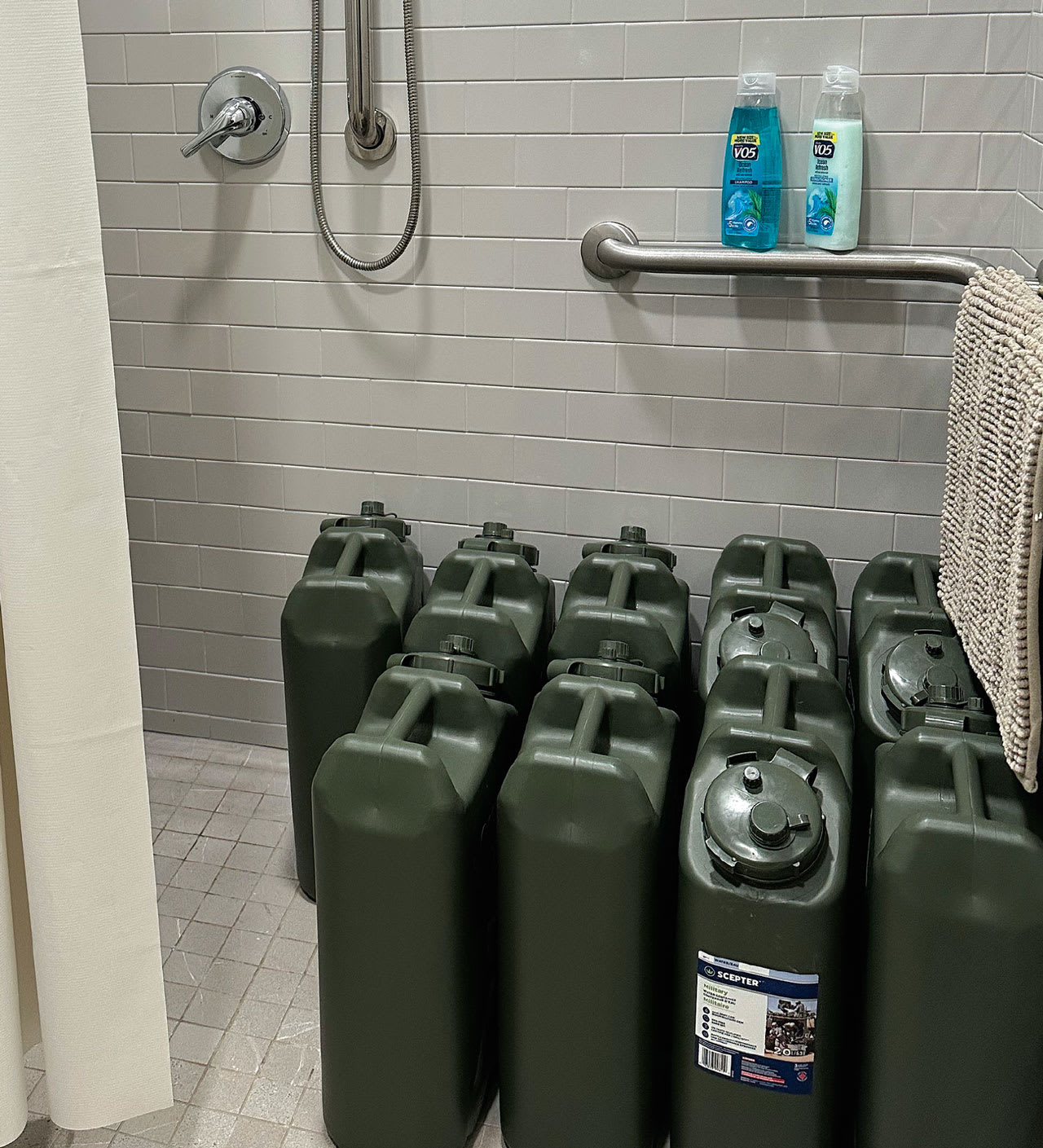With the devastation (and continuing aftermath) caused by Hurricanes Helene and Milton last year, three optometrists who experienced these catastrophes provide tips on how to weather such storms. (Note: Hurricane season is roughly five months away, though these tips are, arguably, applicable to all natural disasters, such as earthquakes.)
Get a generator
Lisa M. Greene, OD, of Asheville Vision and Wellness, in Asheville, NC, recommends every practice have a hookup for a generator and the generator to go with it. “When we built the practice, we had a generator hookup installed, but we never bought a generator,” she explains. “Now, we are in the process of buying one because so many businesses and homes around us lost electricity. We lost power for about four days here in the clinic, but we did not sustain any damage from the 2024 hurricanes.”
Stock water barrels
Because dangerous storms can pollute the local water supply, Dr. Greene suggests stocking at least a few 5-gallon water barrels for drinking, operating the bathrooms, and sanitation.
Casey Krug, OD, who operates a private low vision clinic in Asheville, NC, agrees, stating her clinic relied on 5-gallon buckets of water immediately after Hurricane Helene.

Remove valuables
Because the aftermath of a natural disaster can be a lack of infrastructure, it’s important to have a plan and destination in place to remove all valuable items from your optical prior to the impending disaster, stresses Dr. Greene. “With storms like this, you see the good in humanity and the bad,” she says. “Looters did invade some businesses in our area.”
Provide the comforts of home
Dr. Greene also suggests outfitting one’s practice with a kitchen, shower, and medicine cabinet. “I’ve been able to cook meals here in the clinic for team members who lost power or enable those same team members to use the kitchen, so they can cook meals for their families,” she says. “The practice also has a shower available for staff who don’t have running water. With the instillation of the generator, our practice could become a full-fledged shelter with the exam rooms acting as bedrooms.”
In addition to having a full kitchen and shower, Dr. Greene recommends having a medicine cabinet that contains a small stock of common medications, such as antibiotic drops, in case storms affect the operation of pharmacies or a patient’s ability to travel to one. “Pharmacies in the Asheville area were closed for roughly two weeks due to power loss,” she explains. “Thankfully, we were still able to treat patients, particularly those who presented with corneal infections caused by contaminated flood water and mudslides.”
Set up a referral network
“You definitely want to have the names and numbers of other health care providers, including other local optometrists and ophthalmologists, in your area,” Dr. Greene stresses. “This way, you can refer patients whom you may not be able to help because of storm damage.”
Haley Perry, OD, who practices at Elite Eye Care, in Arden, NC, agrees, and says her practice partnered with Tunnel Vision, a local competitor, to share her office space, so they could continue serving their patients after their practice experienced flooding.
Secure satellite internet
Dr. Greene points out that without an internet connection, her practice simply can’t operate. When Hurricane Helene first hit, she says the practice lost internet, so they purchased a satellite internet system as a back-up. “The system we bought doesn’t have to be operational all the time,” she explains. “It’s like a generator for the internet, in that if we lose a connection with our regular providers, we can flip the system’s switch and use it.”
Acquire an internet-based phone system
“Having this go through the satellite internet system allowed the practice to stay in contact with staff and patients,” Dr. Greene notes. “Further, the internet-based phone system enabled us to answer the practice phones and check messages remotely, which helped with triaging patients.”
Make a financial plan
Dr. Perry suggests making a financial plan that will get you through a disaster, weather-related or not. “During the COVID pandemic, we learned the importance of financial resilience — deferring payments when possible, opening lines of credit for emergencies, and securing Small Business Association loans, such as Economic Injury Disaster Loans, to maintain stability,” she offers. “This knowledge was invaluable when navigating the disruptions from Helene, as we leveraged these same strategies to support our recovery.”
She adds that the practice also kept cash on hand for both business and personal needs, as loss of electricity would not allow for other transactions.
Prepare to show up
Dr. Krug emphasizes the importance of preparing to show up after any disaster to be available for patients. With that said, she says she opened her practice doors following Hurricane Helene, despite having no communication systems or running water. “To my surprise, every single patient showed up! It was inspiring to witness their resilience and dedication during such a challenging time,” she explains.
After the storm
In response to the storm’s aftermath, Drs. Greene, Krug, and Perry’s practices provided community-wide clinics where patients received free eye exams, and frames and spectacles lenses. Essilor/Luxottica’s One Sight charitable organization donated both. Additionally, the optometrists note that local labs also chipped in to ensure those who lost or damaged their glasses as a result of the storms got what they needed. Dr. Krug reflects, “Even when everything else seemed uncertain, our patients prioritized their eye care and trusted us to be there for them. It reminded me why I love doing this work.” OM



